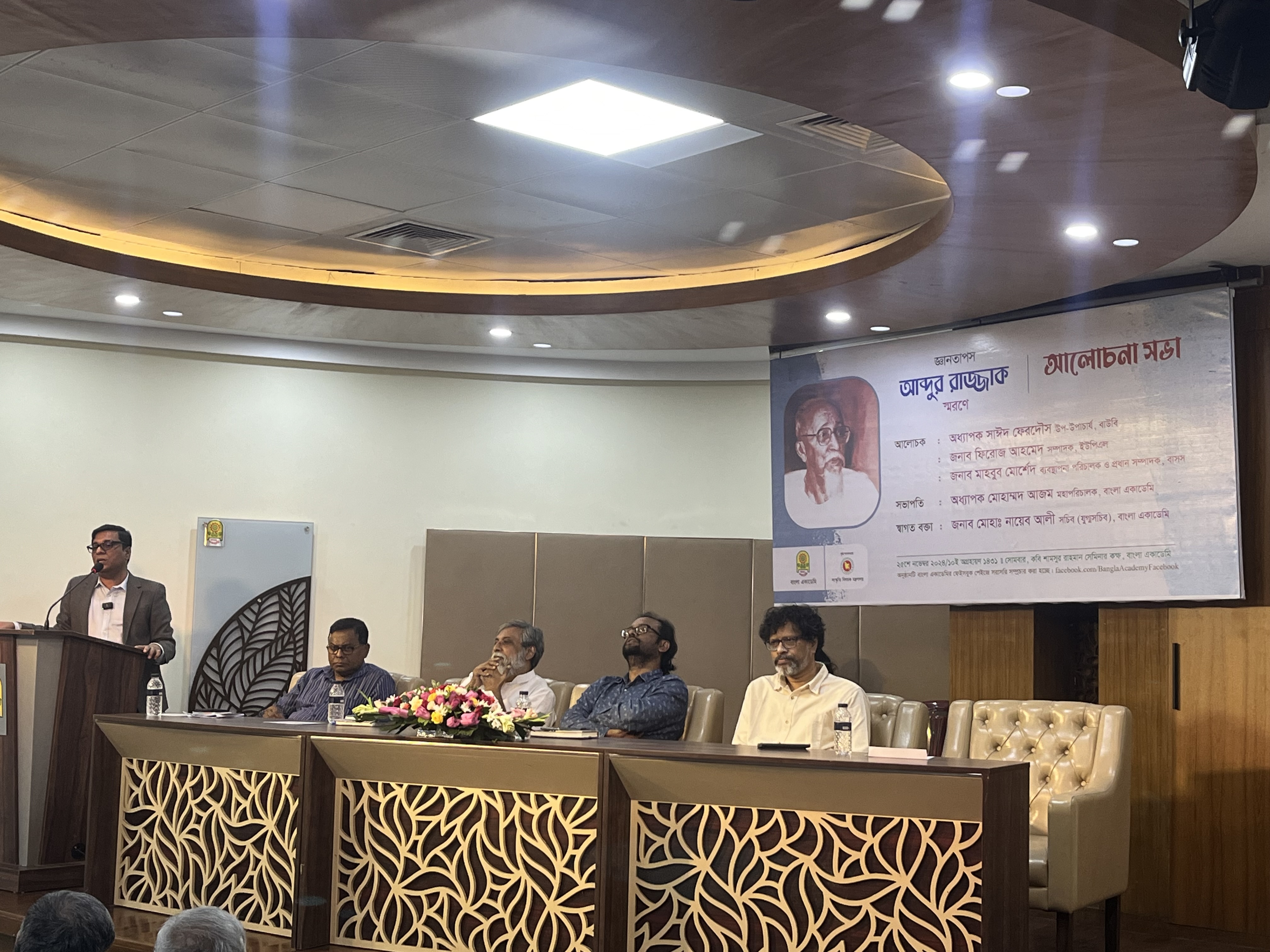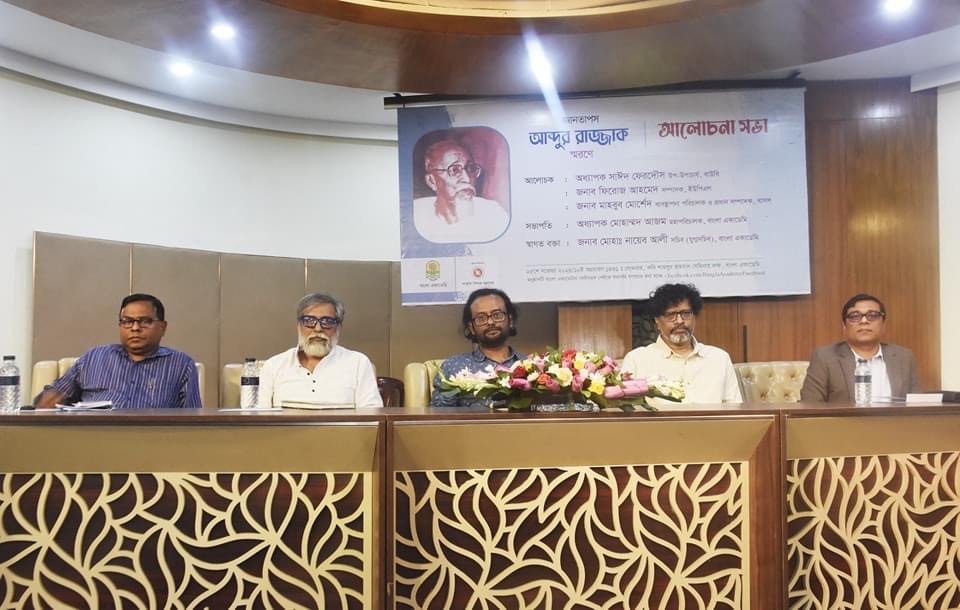
DHAKA, Nov 25, 2024 (BSS)- Academics and writers at a discussion here today recalled the contribution of Professor Abdur Razzaq in shaping the nation’s intellectual base and building self-reliance through instilling immense thirst for knowledge among generations.
They said, Professor Razzaq presented insightful observations on the development of the Bengali Muslim middle class during the colonial period.
As well, Prof. Razzaq identified the impacts of bureaucracy in the politics of Indian subcontinent which is still relevant in addressing the political crisis, they noted.
The speakers came up with the observations at a memorial discussion on noted political and social thinker late Professor Abdur Razzaq at Poet Shamsur Rahman seminar room of Bangla Academy.
Chaired by Bangla Academy Director General Professor Dr Mohammad Azam, the discussion was addressed by Pro Vice-Chancellor of Bangladesh Open University (BOU) Professor Sayeed Ferdous, University Press Limited (UPL) editor Firoz Ahmed, Managing Director and Chief Editor of Bangladesh Sangbad Sangstha (BSS) Mahbub Morshed, and Bangla Academy secretary Moammad Nayeb Ali.

BOU Pro-VC Professor Sayeed Ferdous said the Muslim writers and intellectuals had very little space in the Kolkata dominated intellectual arena which was very deeply observed by Professor Razzaq through his insightful observations.
He stressed the need for realizing the separate demands, perspectives and realities of both Muslims and Hindus in the political landscape, saying, “Without addressing the realities and adopting the economic classes in politics, it is not possible to further political advancement”.
The Professor urged the youth leaders, planning for forming a political party, not to pursue politics focusing on any kind of single identity or excluding a particular community as such move may separate others and ultimately yields no good result.
Professor Razzaq’s major focus was to analyze the significant events of Muslim League and Congress, and he turned down a number of nationalistic political narratives, questioning the existence of any political party in India in the truest sense due to their failure to be inclusive.
Professor Sayeed called upon the young politicians to choose an inclusive approach in doing politics, suggesting them not to practice the culture of imposing decisions from the top level all time and ethos of succession in politics.
Bangla Academy DG Professor Azam said, “Professor Abdur Razzaq was an excellent example of liberalism who successfully interpreted the socio-economic situation of his time by giving full value to each entity”.
Despite criticizing the colonial modernity and colonial westernization that took place in the Indian subcontinent, Prof. Razzaq did not suffer from any ambivalence in accepting the positivity of colonization, said Professor Azam.
Azam said, there was no doubt that Prof Razzaq was a supporter of both the Pakistan Movement and the Bangladesh Movement; rather, he always supported this position with arguments.
“We got the simplest explanations on each complex crisis that arose after the establishment of Bangladesh,” Professor Azam said, adding, “In today’s reality, we have to resort to a visionary like Professor Abdur Razzaq to address any social and political or intellectual crisis”.
Writer and journalist Mahbub Morshed said during the 1940s and 50s, the whole intellectual area and almost all the figures of then Dhaka were somehow influenced by Kolkata due to its domination over the literature, culture and intellectuality.
However, against the domination of Kolkata in the intellectual area, Professor Abdur Razzaq emerged as an exceptional figure who paved the way for the rising intellectual of East Bengal through instilling immense thirst for knowledge among generations and developing narratives, he said.
BSS chief editor Mahbub Morshed said during the pre and post colonial period each intellectual figure has either migrated from Kolkata or spent significant life in Kolkata except Professor Razzaq who has developed new thoughts and observations in Bengali middle class and contemporary political landscape.
Citing professor Razzaq’s observation on bureaucracy, UPL editor Firoz Ahmed said Razzaq in his thesis presented the impact of bureaucracy on political movements during the British period which ultimately imprinted the ways of the political destination of the subcontinent.
Lauding Prof. Razzaq’s foresight Firoz Ahmed said, after 1947, he observed very clearly the economic disparity of the two wings of Pakistan and its ultimate downfall.
After placing the six-point demand, Prof. Razzaq realized that the mindset of Bangali people was revolving around ultimate emancipation, Firoz said pointing out an interview between Prof. Razzaq and one of his students.
Razzaq could read out the nature of the educated Indian middle class and foundation of organised political movements in India, Firoz added.